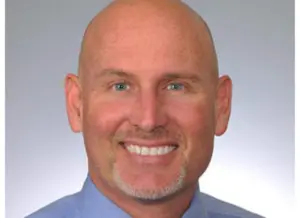As more elderly adults suffer from the symptoms of dementia, their adult children often wonder what they can do to avoid falling victim to the brain disorder that takes their parents. Elderly adults are often unable to express the other health problems they experience, so their children wonder what aches and pains come with dementia.
One question often arises: Does dementia cause severe migraines? The question shouldn’t be whether dementia causes them, but whether migraines play a role in developing dementia. Researchers have found that there are several factors that can lead to elderly adults developing dementia, and one of those factors is a history of migraines.
Relationship Between Migraines and Dementia
At this point in time, there is not a cure for migraines, and there is not a cure for dementia. But, people with migraines can find relief. Some turn to their local chiropractor for migraines. Others combine chiropractic care with other holistic remedies. Some turn to their primary care physicians for medication.
With researchers looking into the connections between dementia and migraines, they are finding that those who suffer from the debilitating headaches can work on treating their headaches. Researchers are also looking to see if other lifestyle factors that often accompany migraines are what really lead to dementia. People who suffer from migraines often have trouble sleeping. Some might have dietary issues and sedentary lifestyles, which can also be forecasters of dementia.
Numbers of Migraine and Dementia Sufferers
According to the Center for Disease Control, dementia is the sixth most common cause of death for senior citizens. According to the World Health Organization, at least half of adults between the ages of 18 and 65 have reported a headache. Of those, one-third of them have reported having migraine headaches. With some many people suffering from headaches as adults, and so many elderly adults suffering from dementia, it comes as no surprise that there is a connection between the two issues that affect the brain.
Preventing Migraine Headaches
Migraine headaches are severe headaches that last for several days. Often, people who have migraines have other symptoms like vomiting and nausea, light and sound sensitivity, and issues with speaking, hearing, and seeing. People with migraines report that their severe headaches prevent them from working, relaxing, and living a healthy lifestyle.
Rather than living with the debilitating pain and discomfort of migraines, sufferers can do things to improve their lifestyle. It is important to recognize when migraines are beginning to immediately take steps to reduce their potency. People with migraines can calm their headaches by making changes to their environment. They should
- Turn off the lights to relax in a dark, quiet space.
- Use ice packs on the head or neck to numb the discomfort.
- Take a warm bath with Epsom salts to relax muscles.
- Drink a cup of caffeinated coffee or tea to reduce caffeine headaches.
- Take acetaminophen to reduce the pain of headaches.
Regular Sleep Schedules Matter
It is important for people who have regular migraines to build a regular sleep schedule for themselves. Research finds that a lack of sleep can trigger migraines. To reduce the chances of migraines occurring, it is important for sufferers to go to sleep at the same time at night and wake up at the same time each day. They should also avoid napping, because naps can make it difficult to fall asleep at night.
To make sleep better, it is important to take time to relax at night. People who suffer from migraine headaches should avoid exercising, eating big meals, and drinking caffeinated or alcoholic beverages before sleeping. Instead, read a book, take a warm bath, or listen to relaxing music to prepare the body and mind for a solid night of sleep.
It is also important to create a setting that encourages sleep. The bedroom should be reserved only for sleeping and intimate activities. When people use their bedrooms as offices, they no longer have a room that is reserved for quiet sleep. The bedroom becomes associated with work, and it affects relaxation. If there are distracting noises, a fan or white noise machine can muffle them.
Some people have difficulty falling asleep because they try too hard. Rather than laying in bed trying to force sleep, find something quiet and relaxing to do – like reading a book or taking a bath.
Record Your Migraines
To get a better understanding of migraine frequency and severity, many sufferers record their migraine history in a journal. Migraine sufferers can use their journals to find out what triggers their headaches. To get a handle on what causes them and how long they last, record meals, sleep patterns, and migraine severity. Some migraine sufferers rate their migraine pain on a scale they set. It shouldn’t take too long before a pattern begins to emerge.
Manage Stress
Stress can also trigger migraines. While it is possible to control diet, exercise, and sleep, it is not as easy to control stress. It is possible to control reactions to stress. Some migraine sufferers do the best they can to take control of the stress in their lives by doing fewer things each day. They intentionally find time to relax and unwind, rather than do more chores or work longer hours.
Reducing stress can be as simple as creating a to-do list for work, home, and family. They learn to delegate so they are not as overtaxed each day. The to-do lists include exercising, like taking a walk or stretching each day. The lists should also include times for breaks.
People with migraines need to find time to do something they enjoy. Having a craft or a hobby makes it easier to fight stress. Migraine sufferers should also learn relaxation techniques like deep breathing, meditation, and sitting in silence. They also learn how to keep their attitudes on a neutral and pleasant scale. They work hard not to become overly negative.
Relaxing, sleeping well, and finding quality care can help reduce the problems associated with migraines. By reducing migraines, sufferers can lessen their chances of developing dementia as they age.
About Dr. Wells

Dr. Brent Wells, DC
Dr. Brent Wells, D.C. founded Better Health Chiropractic & Physical Rehab and has been a chiropractor for over 20 years. His practice has treated thousands of patients from different health problems using services designed to help give long-lasting relief.
Dr. Wells is also the author of over 700 online health articles that have been featured on sites such as Dr. Axe, Organic Facts, and Thrive Global. He is a proud member of the American Chiropractic Association and the American Academy of Spine Physicians. And he continues his education to remain active and updated in all studies related to neurology, physical rehab, biomechanics, spine conditions, brain injury trauma, and more.


